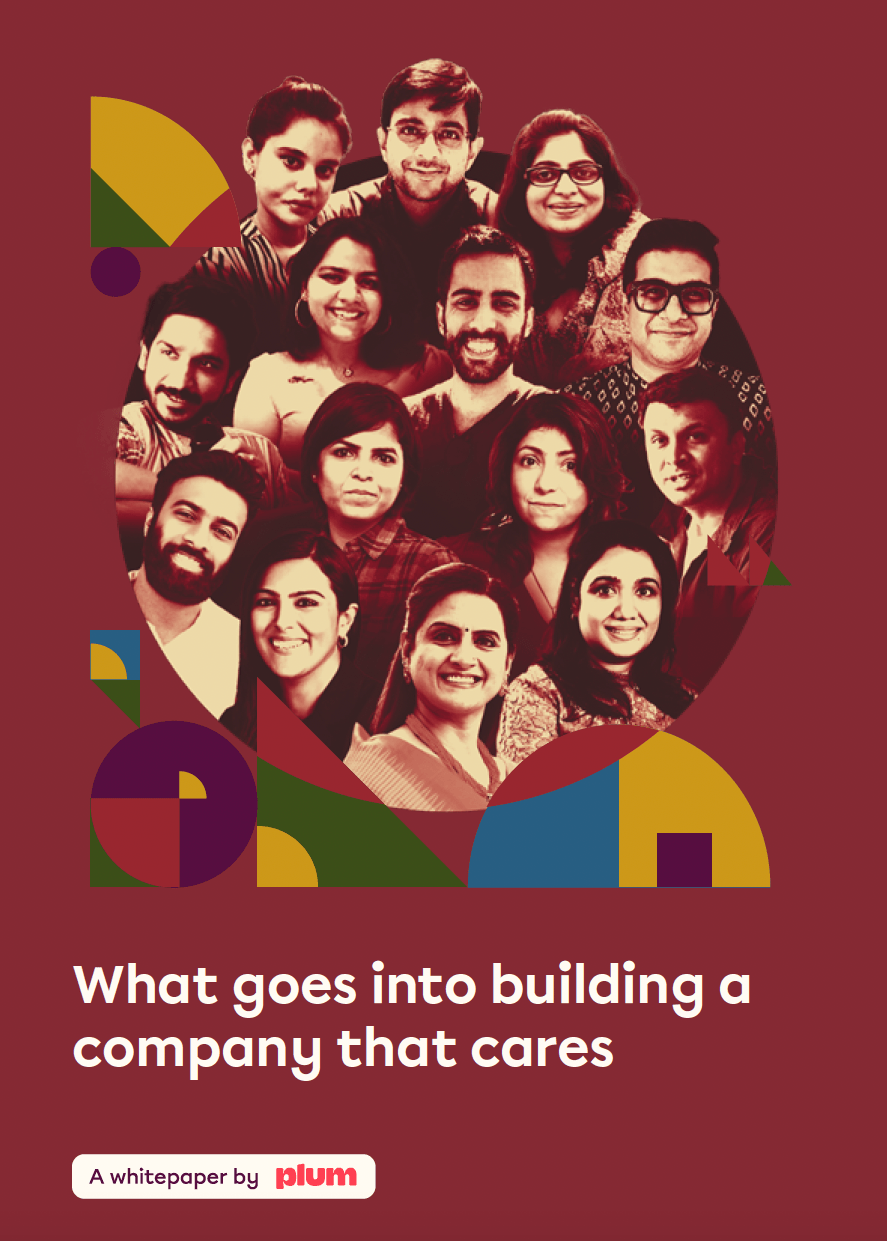Plum, an employee health insurance platform, has released a whitepaper titled, ‘What Goes into Building a Company That Cares’ that reveals the gaps in healthcare and insurance access faced by underrepresented groups in the workplace and urges corporations to recognize the significance of employee health insurance, not only as a comprehensive benefit but also a genuinely inclusive one at that.
While the conversation around diversity, equity, and inclusion (DEI) has gained considerable traction over the recent years, the needle is yet to move to ensure access to quality healthcare and insurance coverage for underrepresented groups: including members of the LGBTQIA+ community, people with disabilities and women. Plum’s whitepaper on inclusion through insurance addresses these disparities and also proposes corrective measures to make benefits at workplaces truly inclusive.
Plum collaborated closely with top DEI experts and activists like Dr Saundarya Rajesh – Founder-President at Avtar The Power of Diversity, Harish Iyer, an equal right activist, Akshay CM – DEI & Talent Management Consultant, Priti Shetty – Chief People and Culture Officer at We Work, etc. to develop this whitepaper, solidifying its commitment to driving meaningful change.
The whitepaper addresses three key aspects:
Underrepresented Groups in the Workplace:
Lack of DEI initiatives within organisations can have detrimental effects on both individuals and the company as a whole. People from underrepresented groups may face obstacles, discrimination, an unsupportive work environment, and increased stress levels. Companies, in turn, may experience high attrition rates, declining reputation, and reduced productivity.
LGBTQIA+ Community: Despite the decriminalization of homosexuality in India, acceptance of queer communities has been slow. Discrimination against LGBTQIA+ individuals persists in various aspects of life, including housing, banking, employment, and obtaining insurance coverage for their chosen families. Transgender individuals, in particular, face even greater alienation and exclusion.
People with Disabilities: Disabilities encompass a wide spectrum, and promoting inclusivity starts with making small but significant structural changes. This includes planning city infrastructure with accessibility in mind and designing offices that cater to the needs of people with disabilities.
Women: Although women have been part of the workforce for decades, their representation remains disproportionately low. Despite their significant contributions across various fields, societal biases restrict women to certain roles. SEBI regulations require listed companies to have at least one woman on their board, but the representation falls short, with 61% of companies having only one independent woman director and 12% having none.
Accessibility of Health:
LGBTQIA+ Community: Approximately 8% of India’s population identifies as part of the queer community, making it a significant demographic. However, barriers to accessing healthcare remain high due to societal alienation, putting LGBTQIA+ individuals at a higher risk of mental health struggles. Depression, substance abuse, and violence victimization are prevalent issues. Men who have sex with men (MSM) are considered a high-risk group for HIV, yet medical barriers prevent them from being tested. Additionally, gender reassignment surgeries are costly, with significant financial implications for individuals.
People with Disabilities: Families with a member with disabilities bear 17% higher expenses compared to the average family. Limited access to insurance creates additional financial burdens for these families, exacerbating an already challenging situation.
Women: Women face a triple burden related to childcare, reproductive health, and lifestyle diseases throughout their lives. Much of the associated costs are borne out of pocket, increasing the financial strain on women and their families.
Culture of Inclusion – Insurance and Benefits, Technology, Policy:
Insurance: Plum currently provides employee wellness solutions to over 3000 corporate clients,
- Less than 1% of Plum’s customers have holistic covers that cover women’s needs
- Less than 25% of Plum’s customers, for instance, have opted for the new-age insurance covers
- Less than 60% of Plum’s customers have holistic covers for people with disabilities
Plum emphasizes that the comprehensiveness of an employee benefits plan should be evaluated beyond its sum assured, taking into account the inclusion of specific needs such as maternity, gender reassignment surgeries, and prosthetics. While insurance may cover LGBTQIA+ needs, it is essential to consider the extent of coverage, as many outpatient expenses like medication, therapy, and tests may be excluded.
Workplace Policy: Listening to employee needs and perspectives through focus group discussions and surveys is crucial for organizations to stay ahead in fostering an inclusive environment. Clear communication of inclusivity policies and ongoing education for employees demonstrate a commitment to change.
Workplace Design: Poorly designed workplaces have a negative impact on the overall health of employees, especially those from underrepresented groups. To improve workplace design:
- For Women: Build more restrooms and designated spaces for breastfeeding employees.
- For LGBTQIA+: Establish gender-neutral restrooms and allow for a gender-neutral dress code.
- For People with Disabilities: Provide ergonomic equipment, adjustments, and assistive technology such as speech-to-text devices and screen readers to accommodate their needs.
Plum emphasizes that every forward-thinking company should prioritize accountability, transparency, and a culture of inclusion.


























